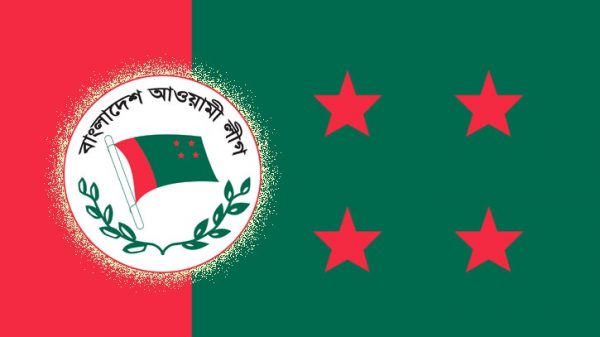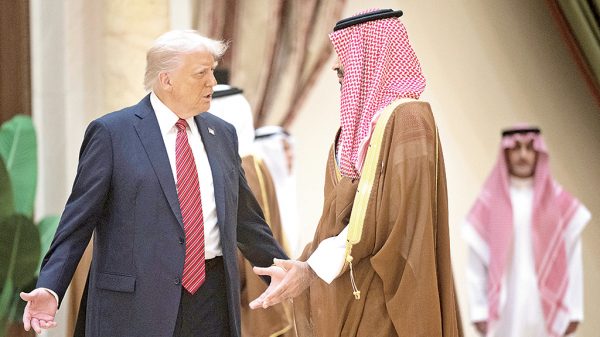Will Awami League turn Awami Muslim League?

Syed Borhan Kabir:
“Islam and Muslim”, the religious terms, cannot be abused as tools of fooling people. Bengali Muslims have good faith in the religion but they will not be politically exploited. (Page 258, The Unfinished Memoirs, Sheikh Mujibur Rahman)
Secularism was one of the basic political principles of Bangabandhu Sheikh Mujibur Rahman. He fought for stamping out fundamentalists, fanatics and religious bigots throughout his whole life. Secularism was also the basis of Bangladesh’s war of liberation. The Hindus, Muslims, Christians and Buddhists –all are Bengalis. They participated in the liberation war in 1971 out of nationalist feeling. Many of them sacrificed lives to the cause of liberating the country from Pakistani occupation ruler.
Bangladesh has just finished 10-day national celebration of golden jubilee of independence and birth centenary of Bangabandhu. The country seems to have failed in eliminating the religious bigots. We are worried about rise in and atrocities of the fundamentalists. The state programme commemorating the 50thyears of independence and Mujib Borsho commenced on March 17. Fundamentalists carried out attack on the homesteads of the people of Hindu community at village Naogram of Shalla upazila in Sunamganj the same day. It was the 102th birth day of Father of the Nation Bangabandhu Sheikh Mujibur Rahman. Nearly 88 houses were damaged and looted.
Thousands of Hefazat-e-Islam supporters attacked a Hindu village as a youth of that minority community allegedly made a facebook post against Joint-Secretary General Mawlana Mufti Mamunul Haque. The youth reportedly criticised Mufti Mamunul for opposing construction of Bangabandhu sculpture.
Police arrested the Hindu youth for making the facebook status. The incident has sparked two questions. Did the Hindu youth commit any offence by criticising Mufti Mamunul? Was not taking the law into own hands an offence?
Hefazat leader Mamunul Haque instigated people to launch the attack. He is the abettor.
The fundamental group has been showing atrocities and arrogance for last couple of years. They are making absurd demands and threatening the government. A section within the ruling Awami League is compromising with the fundamental outfit.
Awami League government is in power since a decade. The party is enjoying exclusive majority in the parliament. It is not facing any pressure from political opponents. People of the country are also supporting the government.
The ruling party is in the privileged situation. Why is it playing “game of compromise” with the fundamentalists? Has Awami League backtracked from its secular politics?
On June 23, 1949, Awami Muslim League was constituted. The party was floated as a protest against the misrule and fundamental politics of Muslim League. Bangabandhu was Joint Secretary of the party. In 1955, the word “Muslim” was deleted from the name of the party. Such a decision was taken at a council of the party. The seed of secularism is implanted in the party. Bangabandhu hated fundamentalism till last drop of life. He fought for establishing a secular country. He wanted to establish secularism in every sphere of the society.
In his writing, Bangabandhu claimed “Awami League and its activists are against all forms of fundamentalism.” (Page 258, Unfinished Memoir)
Bangabandhu was symbol of protest against misrule and religious extremism. On January 3, 1971, 419 members of Awami League, newly elected in the national and provincial councils, were sworn in at Dhaka’s Racecourse Field. Bangabandhu Sheikh Mujibur Rahman administered the oath. The newly-elected members vowed to implement a new society free of exploitation, injustice and inequality. Speaking on the occasion, Bangabandhu said “Bangladesh will go ahead with coexistence of Muslim, Hindu, Buddhist and Christian. The decade-long persecution of the Buddhist will cease to exist.” (Page 219, Sheikh Mujib; the name of Bangladesh, Dr Atiur Rahman)
People have voted Awami League to power for implementing the unfinished works of Bangabandhu. The party is in power for several consecutive terms. Unfortunately, several incidents of attack on the minority Hindu and Buddhist communities took place during the regime. The attack on Buddhists at Ramu of Cox’s Bazar on September 29, 2012; that on Hindu village in Sathia on November 2, 2013; and persecution of minorities at Bag Sitarampur at Homna upazila in Cumilla on April 27, 2014 can be remembered.
The religious extremists launched attack on minority community at Nasirnagar in Brahmanbaria, Gangachara in Rangpur, Borhanuddin in Bhola, and Korbanpur in Cumilla at different times. But the patterns of the attacks are identical. Facebook status was used as a tool of fomenting religious hatred and instigating people to attack the minority people.
The steps taken by Awami League government and law enforcing agencies are not an issue of this discussion. Awami League has failed to play due role. Rather, some party men are found to be involved in some incidents directly and indirectly.
Bangabandhu banned religion-based politics. On November 4, 1972, Bangabandhu addressed Constituent Assembly. He made his stand clear that religion cannot be abused politically.
The post-75 changeover has affected the country’s secular characteristic. After assassination of Bangabandhu and most of his family members on August 15, 1975, anti-liberation forces had usurped the state power. The military regime of Ziaur Rahman uprooted secularism from the Constitution. He facilitated politics of anti-liberation group Jamaat Islami. Top war criminal and Jamaat founder Ghulam Azam returned to the country at the behest of Zia. They tried to brand Awami League as an anti-Islamist party. They launched a dirty campaign that Awami League is pro-Hindu party and subservient to India. Many people were confused due to the rumour which continued for 21 years. Many Awami League leaders and activists tried to prove that they are not what they are being said to be. They refrained from raising voice against religious bigots.
There is no denying of the fact that Awami League chief and Prime Minister Sheikh Hasina has bold stand against religious fundamentalism. She dared to try war criminals and controlled extremism. But fundamentalism has made inroads into the party.
Thousands of leaders and activists of Hefazat-e-Islam besieged Shapla Square of the capital on May 5, 2013. They launched atrocities attacking people, beating female journalist, setting business establishments and offices afire and uprooting trees. The government tackled the situation aptly. Law enforcers compelled the fundament group to leave the spot with professionalism. The aftermath was not in line with the expectation of the countrymen. The cases filed over Hefazat atrocities were shelved. Some Awami League leaders made kinship with the fundamental group. Later, the government changed national textbook and curriculum following demand of Hefazat.
After the demise of Hefazat Amir Shah Ahmad Shafi, the group’s leaders and activists have become more violent. They are issuing arrogant statements and making absurd demands. They are opposing the government’s plan to construct sculpture of Bangabandhu and issuing threats.
Many Awami Leaguers seems to be shy to open mouth on the issue. Hefazat violently protested against Narendra Modi’s Dhaka visit. The ruling party showed unusual restraint. Some leaders are trying to justify their position. They told me that the government should maintain good relations with Hefazat which is Qawmi Madrasah based organisation, not any political party.
If Hezaf remain in control of the government, opposition BNP and Jamaat will not be able to abuse it against country and government, the leaders opined.
The above interpretation is not tenable. A new student of political science knows well that a fundamental group like Hefazat can never be friend of Awami League. It will swoop on the ruling party if and when gets scope.
In irony of the fact, Awami League is more vocal against other political parties than extremist group Hefazat. As a result, undercover agents of anti-liberation forces are being united under the umbrella of Hefazat.
Many leaders of the ruling party were of the opinion that hard stand against Jamaat and war criminals may affect vote bank. Sheikh Hasina did not subscribe to the view.
Trial of war criminals was enumerated in 2008 electoral manifesto of Awami League. Many politicians and experts apprehended that trial of war criminal my invite perilous situation and deteriorate relations with the countries of the Middle East. Hanging Jamaat leaders, especially BNP standing committee member Salahuddin Quader Chowdhury was a distant dream to them. Sheikh Hasina was unmoved. She did the impossible thing possible.
Now, the unusual softness towards Hefazat has sparked confusion in the public mind. Awami League was formed 72 years ago protesting misrule and religious atrocities. It is ever fresh and popular. A fundamental group can never be friend of a secular party. Sheikh Hasina is imbued with the ideals Bangabandhu. She never compromises with fundamentalists.
We are afraid of the intruders. The newly converted Awami Leaguers are always powerful than the dedicated leaders and activists of the party. The undercover agents have no allegiance to the party. They are ignorant of the ideology of Bangabandhu. They have an agenda to do harm of the party, country and people. A section of leaders of the party are opportunists and trying to compromise with Hefazat and other fundamental groups.
Intruders and opportunists constitute a large portion of Awami League today. Administration is not an exception. They are pretending to be loyal to be ruling party and Bangabandhu, but serving purpose of fundamentalists. They do not want to establish Hefazat. They are trying to turn Awami League into Hefazat.
Bangladesh has stepped into 51st years of its independence. Razakars and anti-liberation forces are still plotting against the country and its sovereignty. In 1971, they opposed liberation of the country. Now, they are protesting Modi’s Dhaka visit. It is a threat to the existence of the country.
Bangabandhu’s dream is not only to achieve socioeconomic development but also to ensure communal harmony. It is high time that good sense prevailed in Awami League policymakers.
(The writer is Executive Director of Poriprekkhit)





























Leave a Reply